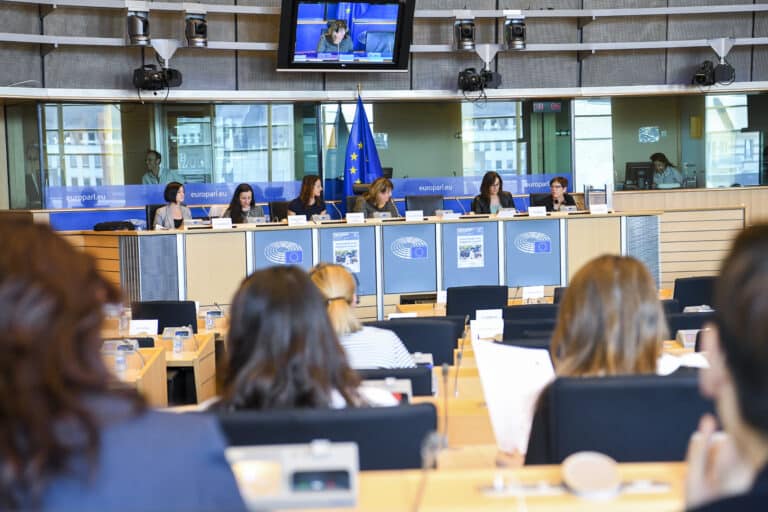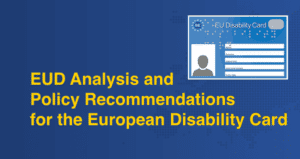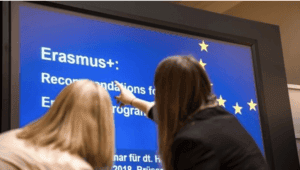The European Parliament’s Committee on Women’s Rights and Gender Equality (FEMM) organised a hearing on “The Situation and Rights of Women with disabilities” on the 10th of October 2017. The hearing was a great opportunity for women with disabilities to share their different experiences and provide input for the report on which the Committee will continue to work on in 2018. The invited experts shared their views and proposed practical solutions for protecting and promoting the rights of women with disabilities.
During the hearing Ms Ana Peláez Narváez (EDF Vice-President and CERMI Women’s Foundation Executive Vice-President), Ms Thérèse Kempeneers-Foulon (Director General of Inclusion asbl), Ms Valérie Van Hees (coordinator of the Belgian Support Point for Inclusive Education in Higher Education (SIHO) and Ms Julia Probst (activist and blogger) presented their views.
It was highlighted that women with disabilities form approximately 16% of the total population of women in Europe and the proportion of women within each country reporting a disability varies widely, from 6.3% in Italy to 33.6% in Finland. It was emphasised that women with disabilities face issues in employment, education and training, democratic processes and decision making. Some women with disabilities are also victims of abuse and violence, since women with disabilities are at greater risk of being targeted.
Regarding employment, women with disabilities face a multiple discrimination in the workplace based on both their gender and their disability status, since disability is the most important issue shaping access to work. With regards to education, rates of persons with disabilities participating in education are lower than for persons without disabilities. Moreover, women with disabilities remain under-represented in democratic processes and decision-making.
It was highlighted that there are several commitments at the EU level which strengthen the rights of women with disabilities across a range of policy fields. For instance, the EU Directive 2000/78/EC prohibits discrimination and obliges to make reasonable accommodation regarding the area of work and employment. Most states have gone beyond this scope, and offer similar protection against discrimination in other EU domains, including education.
Ms. Julia Probst presented deaf women’s perspective. It was emphasised that deaf women face many barriers while accessing sign language, which denies access to information and possibility to express themselves. In many instances, such as emergency situations or during visits in hospitals deaf women are not provided with sign language interpretation, which restricts their communication and place them in disadvantageous situation.
The workshop was concluded with remarks that disability has consistent and severe impact on the lives of both men and women however the negative impact of disability is unevenly spread between the genders. Therefore, the intersectional perspective is very important. The EUD will continue to advocate for rights of women with disabilities to ensure that less and less women experience multiple discrimination.













